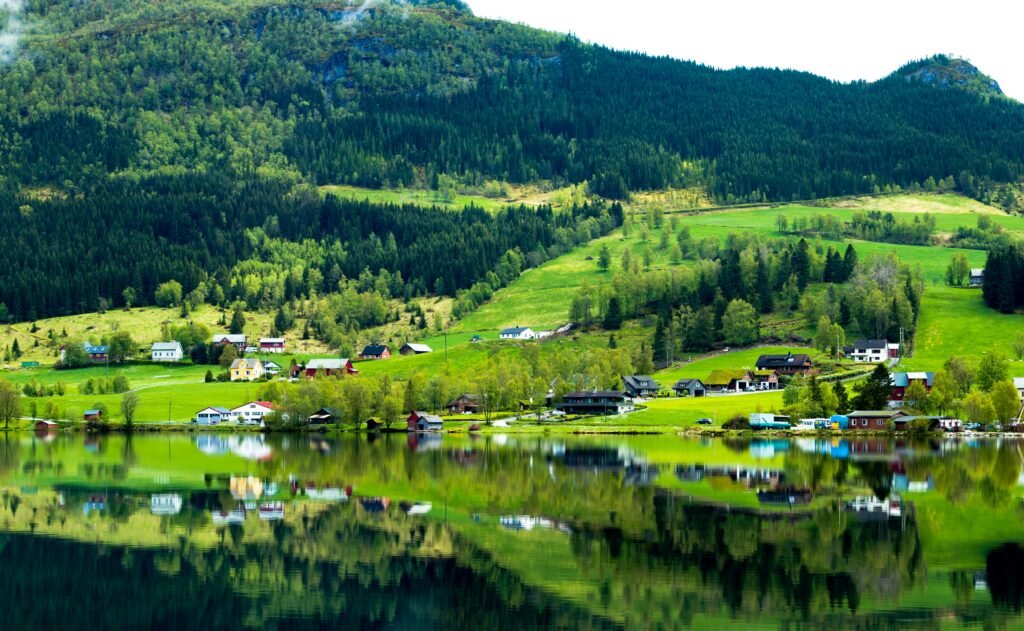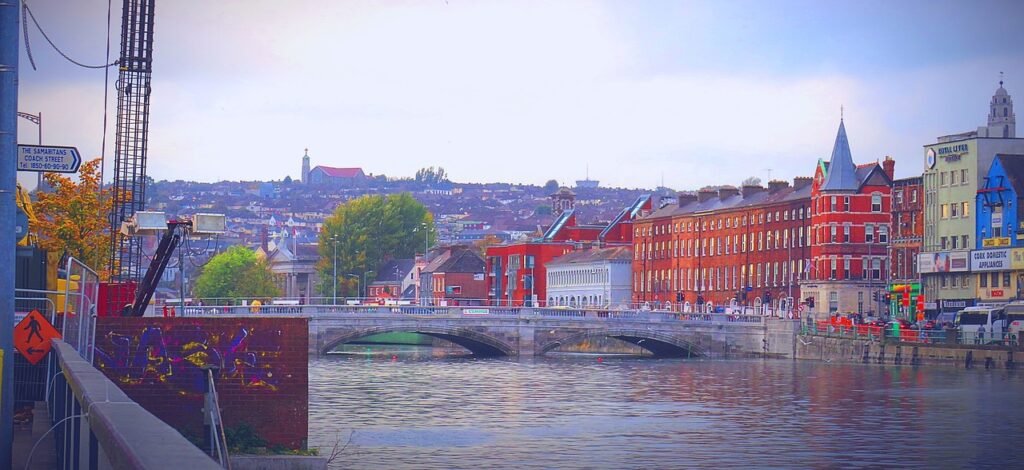Why Study in Poland?
Poland offers affordable, high-quality education in a safe, dynamic, and culturally diverse environment. With a growing number of English-taught programs—especially in medicine, engineering, business, IT, and social sciences—Polish universities are becoming an increasingly popular choice for international students, including those from Bangladesh. Tuition fees are competitive, and the overall cost of living is among the lowest in the EU.
Students in Poland benefit from strong academic traditions, modern infrastructure, and a welcoming atmosphere. The country’s strategic location in Central Europe makes it easy and affordable to explore other EU nations. Studying in Poland not only provides a valuable European degree but also opens doors to job prospects across the EU, with clear post-study work and residence pathways for international graduates.
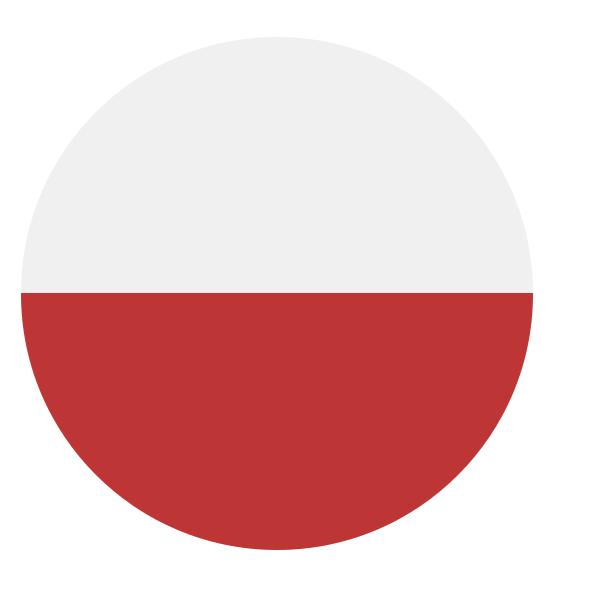
- Study in
Poland
Study Programs in Poland
Study Programs in Poland for International (including Bangladeshi) Students:
Schooling / Primary & Secondary Education
Poland offers a mix of public, private, and international schools. International and bilingual institutions follow globally recognized curricula such as the British, American, or IB (International Baccalaureate) systems. Public schools are free for residents but primarily use Polish as the language of instruction, while international schools charge tuition.
Diploma & Vocational Programs
Poland provides various diploma and vocational education options through technical schools and post-secondary institutions. These programs focus on practical, job-ready skills in fields like IT, mechanics, construction, healthcare, logistics, and hospitality management.
Bachelor’s Degrees
Polish universities offer a wide array of English-taught bachelor’s programs in disciplines like business, engineering, computer science, economics, and environmental studies. Degrees are aligned with the Bologna process and are recognized across the EU and globally.
Master’s Degrees
Poland is known for affordable, high-quality master’s programs with increasing availability in English. Key fields include data science, public health, cybersecurity, architecture, international business, and engineering. Many universities also partner with European networks like Erasmus+ for joint degrees.
PhD Programs
Doctoral education in Poland follows European academic frameworks and is provided by research-intensive institutions. PhD candidates engage in independent research in areas such as science, technology, medicine, economics, and the humanities. Competitive scholarships, including those funded by the Polish National Agency for Academic Exchange (NAWA), are available.

- Study in
Poland
Step-by-Step Guide
🇵🇱 Step 1: Research Universities and Programs
Explore Polish universities that offer English-taught or Polish-medium programs. Identify institutions that align with your academic background and long-term goals. Popular fields include medicine, engineering, IT, business, and international relations.
🇵🇱 Step 2: Check Eligibility Requirements
Review the academic entry criteria, language requirements (such as IELTS/TOEFL for English-taught programs or Polish language proficiency for local-medium courses), minimum GPA, and any specific subject prerequisites.
🇵🇱 Step 3: Prepare and Submit Applications
Apply directly through the university’s online portal or via platforms like “Study in Poland.” Required documents typically include academic transcripts, CV, motivation letter, recommendation letters, and proof of language proficiency. Translate documents into English or Polish as needed.
🇵🇱 Step 4: Explore Scholarships & Funding Options
Research scholarships like the NAWA Scholarship (Polish National Agency for Academic Exchange), Erasmus+, university-specific merit-based scholarships, or programs for students from developing countries.
🇵🇱 Step 5: Receive Offer and Accept Admission
Once you receive your offer letter, follow the university’s guidelines to accept the admission. Pay any required tuition deposits or administrative fees to confirm your seat.
🇵🇱 Step 6: Apply for Student Visa (National Visa – Type D)
Apply for a Polish student visa at the Embassy of Poland in Dhaka. Required documents include the admission letter, proof of financial means (tuition + approx. €600–€800/month for living expenses), confirmed accommodation, health insurance, medical certificate, and police clearance.
🇵🇱 Step 7: Arrange Accommodation and Insurance
Book student dormitories or private housing. Make sure to obtain valid health insurance that meets visa requirements and covers your stay in Poland.
🇵🇱 Step 8: Plan Travel and Arrival
After receiving your visa, purchase your flight ticket. Keep essential documents (visa, admission letter, accommodation, proof of funds) readily accessible for immigration checks. Attend any available pre-departure sessions or briefings organized by your university or consultancy.

- Study in
Poland
Explore Our Partner Universities
Coventry University Wroclaw
University of Szczecin
Warsaw University of Business and Psychology “Moderna”
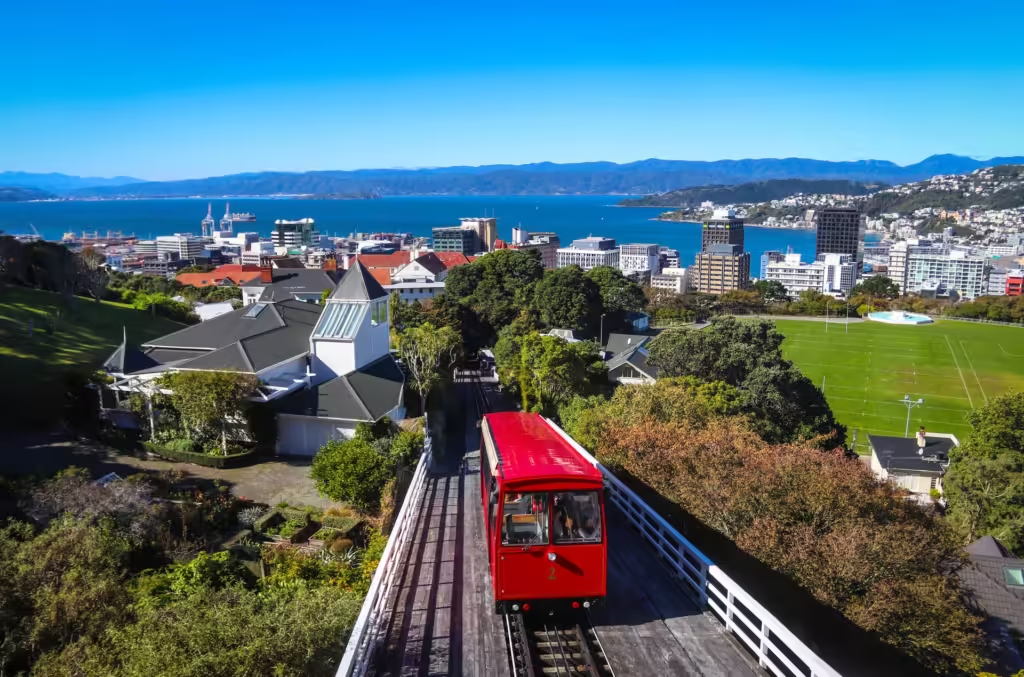

- Study in
Poland
🇵🇱 Average Tuition Fees in Poland (2025)
Primary & Secondary School (International Schools)
€4,000 – €10,000 per year
International schools in Poland offer British, American, or IB curricula, mainly located in major cities like Warsaw, Kraków, and Gdańsk. Public schools are free but conduct classes in Polish, which may be challenging for non-Polish-speaking children.
Bachelor’s Degree (Public Universities)
€2,000 – €4,000 per year
Tuition fees depend on the university and field of study. Arts and humanities are usually more affordable, while engineering, IT, and health sciences may cost more.
Master’s Degree (Public Universities)
€2,000 – €5,000 per year
Poland offers a variety of English-taught master’s programs in business, economics, science, and technology. Tuition remains competitive compared to other EU destinations.
PhD Programs (Public Universities)
€1,500 – €4,000 per year
Doctoral programs in Poland are research-oriented and may include stipends or grants from universities or government agencies like NAWA.
Private Universities / Business Schools (All Levels)
€5,000 – €15,000+ per year
Private universities and international business schools charge higher fees. Specialized programs such as MBAs may cost €20,000 or more depending on the institution and program ranking.
Visa Categories for Study in Poland

Type C Visa (Schengen Short-Stay Visa)
Valid for up to 90 days within a 180-day period.

Type D Visa (National Long-Stay Visa)
For stays longer than 90 days.

Temporary Residence Permit for Studies
Issued for the duration of the academic program (up to 15 months initially, then extendable).
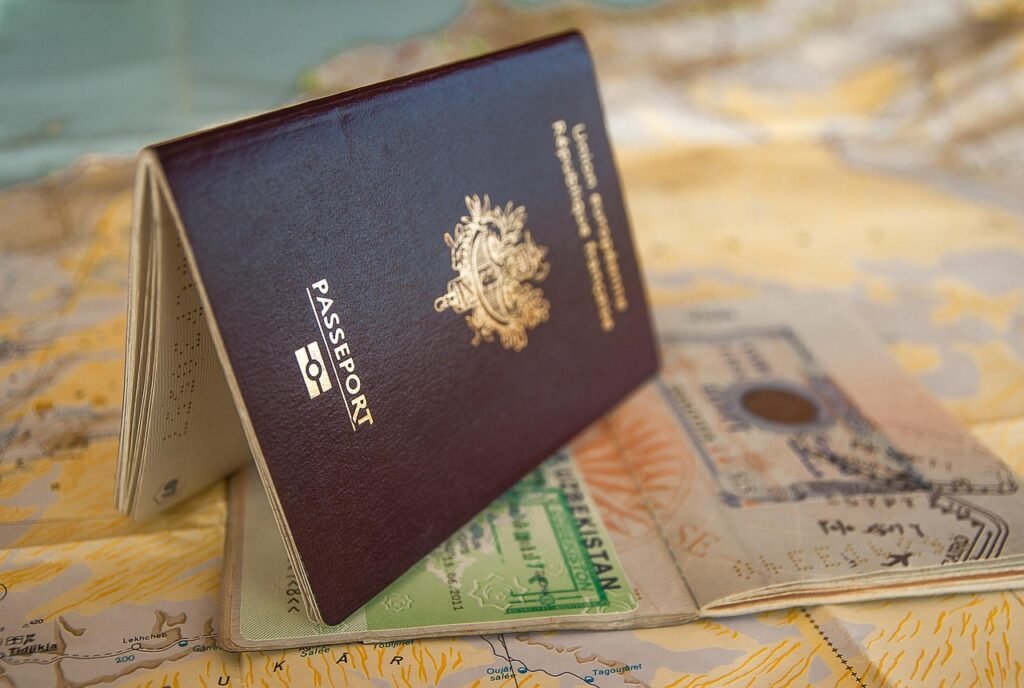
Visa Application Checklist
 Poland Student Visa Application Checklist (Bangladesh)
Poland Student Visa Application Checklist (Bangladesh)
Completed Application Form
Filled and signed National Visa (Type D) application form, available from the Polish Embassy or Consulate website.
Valid Passport
Must be valid for at least 3 months beyond the intended stay in Poland and contain at least two blank pages.
Admission Letter
Official acceptance letter from a Polish university or higher education institution confirming full-time enrollment in an accredited program.
Proof of Financial Means
Evidence that you can financially support yourself during your stay. This may include:
-
Bank statements (usually showing funds of approx. €7,000+ for a year),
-
Scholarship award letters, or
-
Financial guarantee from a parent/sponsor.
Proof of Accommodation
Documents showing where you will stay in Poland, such as dormitory confirmation, rental contract, or a notarized invitation from a host.
Passport Photos
Two recent biometric passport-sized photographs that meet Polish visa photo requirements.
Travel Itinerary
Tentative flight booking or travel plan (not mandatory but recommended).
Health Insurance
Proof of valid health insurance covering your entire stay in Poland. This could be travel insurance or a health policy recognized in the EU with minimum coverage of €30,000.
Academic Certificates and Transcripts
Copies of your previous academic qualifications (diplomas, transcripts, certificates) relevant to the applied program.
Language Proficiency Proof
If required by the institution, provide proof of English proficiency (IELTS/TOEFL) or Polish language proficiency, depending on the course language.
Police Clearance Certificate
A certificate of good conduct issued by Bangladesh Police, translated into English or Polish and legalized if required.
Medical Certificate
A certificate from a licensed doctor confirming that you are in good health and free from contagious diseases (translated if not in English).
Parental Consent (If under 18 years old)
Notarized written consent from both parents or legal guardians, translated into English or Polish.
Payment Receipt of Visa Fee
Proof of visa application fee payment (approx. €60 or equivalent in BDT).
Biometric Data Submission
Schedule and complete biometric data collection at the Polish Visa Application Centre (VFS Global) in Dhaka.
Additional Notes:
-
All documents not in English or Polish must be translated by a certified translator.
-
Originals may be requested during the visa interview.
-
It’s recommended to bring photocopies of all submitted documents as per embassy/VFS guidelines.

- Study in
Poland
Job and PR Pathways After Study
🇵🇱 Job and PR Pathways After Study in Poland
1. Post-Study Job Search Residence Permit:
After completing a higher education degree in Poland, international graduates can apply for a temporary residence permit for the purpose of job-seeking or entrepreneurship. This permit is valid for up to 9 months, allowing time to find suitable employment or start a business related to your qualifications.
2. Employment Opportunities:
Poland’s stable economy and growing industries offer employment opportunities in sectors such as IT, engineering, healthcare, logistics, manufacturing, and finance. Many multinational companies operate in major cities like Warsaw, Kraków, Wrocław, and Gdańsk. English-speaking jobs are available, especially in international firms and shared service centers, though knowledge of Polish can be an asset for local roles.
3. Work Permit (Temporary Residence for Work Purposes):
Once you receive a job offer, you can apply for a temporary residence permit for the purpose of employment. This permit is typically issued for the duration of your employment contract (up to 3 years) and can be renewed. Your job must align with your education or skill level and meet Polish labor market standards.
4. Temporary Residence Permit for Business Activity:
If you plan to start your own business, you may apply for a residence permit for economic activity. Your business must be registered in Poland and demonstrate potential economic benefit (employment, tax contribution, etc.).
5. Long-Term EU Residence Permit:
After 5 years of uninterrupted legal stay in Poland (which can include years spent studying under certain conditions), you may be eligible for the Long-Term EU Resident Permit. This permit allows you to reside and work in Poland with more permanent rights and easier mobility across other EU countries.
6. Permanent Residency (Stały Pobyt):
You can apply for Permanent Residence after meeting specific conditions, such as:
Having a Polish origin,
Being married to a Polish citizen for at least 3 years and living in Poland for at least 2 years, or
Holding a long-term EU resident status.
Time spent on a student visa may count partially toward the required years, depending on the permit type and updated laws.
7. Pathway to Polish Citizenship:
Polish citizenship can be acquired after 10 years of legal residence, or earlier in special cases (e.g., marriage to a Polish citizen, Polish ancestry). Applicants must demonstrate knowledge of the Polish language, integration into society, and meet specific legal criteria.

- Study in
Poland
Our Support During the Process
We’re with you at every step — from your first consultation to settling into life in Poland and beyond, ensuring a smooth, informed, and successful journey.
Personalized consultation at every stage — We take the time to understand your academic goals, financial background, and personal preferences to guide you toward the best-fit study options in Poland.
One-on-one support for admission, visa, and travel — Dedicated assistance with university applications, document preparation, student visa submissions, and travel planning to Poland.
Always accessible — Connect with us via call, WhatsApp, email, or in person — whichever communication method works best for you.
Regular updates, reminders, and document reviews — Stay on track with timely updates, important deadline alerts, and expert review of your application documents to minimize errors or delays.
Post-arrival check-ins and alumni mentoring — We continue our support after you arrive in Poland, offering guidance and linking you with alumni who have successfully settled there.
Support for job search and PR planning — Get tailored advice on finding jobs in Poland, preparing your CV/resume, and exploring post-study work permits and long-term residency options.

